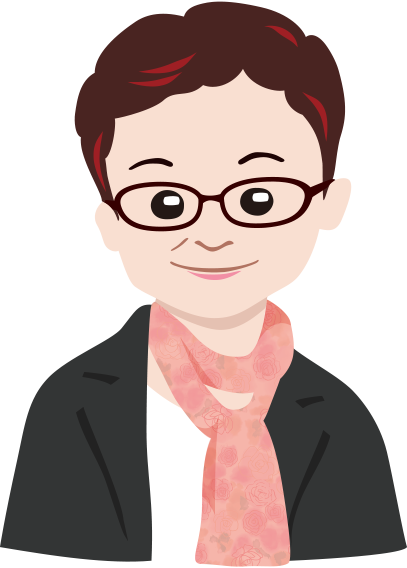January 23, 2017
Good to see you!
Parting ways with the newspaper company where I had worked many years as a science reporter, I arrived at Nagoya University in October last year. My new position is with the International Collaboration Planning Center, a sub-organization of Nagoya University's Institute of International Education and Exchange, my mission to promote international cooperation, particularly in Asia. But another important responsibility in my new job is to conduct fixed-point observation of this environment we call a university, and to share those observations with the outside world.
A significant part of my previous work as a science reporter was to visit universities and interview researchers on various trending themes. Now I am doing the reverse: I have staked out a position at a single university to observe the various happenings here--and not just on discrete topics, but the whole gamut: the humanities and social sciences as well as the sciences and engineering, in the classroom as well as the laboratory.
When visiting universities, in most cases I went directly to and from the interview, with rarely enough time to explore. I never seemed able to fit in even Meidai's Nobel Prize Exhibition Halls; either there wasn't enough time or they were closed. This time I was finally able to look inside.
While strolling around campus recently, the thought came to me: The first time I felt the true depth of the intellectual environment we call a university was, embarrassingly, when I walked their halls as a journalist. In the sciences alone--my specialization--fascinating research was being done all across campus, including at the affiliated institutes. And there were lots of captivating researchers. This was so much the case that, upon visiting my own alma mater, I wondered whether it was the same university as the one I had graduated. Regretting I hadn't been a more diligent student, I then had the somewhat immature thought, "Well, someone should have told me." Either way, what's past is past. But it was this experience that led me, in a talk on liberal arts education, to urge the incoming class of one university to make the most of the school's intellectual environment.
Since then, universities for me have been a constant source of stimulation and discovery. The three-plus months since my arrival at Meidai have been an endless series of "Wow, I never knew that!" moments. Of course, this might be because I was previously based in Tokyo. But it's also made me realize that society needs to know much more about what goes on at universities.
One fact that surprised me soon after my arrival was how much energy Meidai focuses overseas, especially in supporting Asian countries with research and education. To learn more, I accompanied the Meidai missions on an overseas tour, first to Uzbekistan, then to Vietnam and Cambodia. Since I had mainly visited Western countries in my days for my science stories, these Asian countries were new to me. Eventually I hope to relay my trip in detail, but in a nutshell, it confirmed the important role universities have to play here too. In Uzbekistan, I sat in on a planning meeting for the building of an innovation center at a local technical school--promised by Prime Minister Shinzo Abe when he visited the country two years prior. In Vietnam and Cambodia, I attended entrance ceremonies for students beginning Meidai's doctoral programs in their respective countries. Cambodia's itinerary also included the 1st Cambodia-Japan Rectors' Conference, which the Meidai president attended. Representing Cambodia there was the president of the Royal University of Phnom Penh, who obtained his Ph.D. at Nagoya University. Interestingly, Vietnam's young Minister of Justice is also a doctor from Meidai. Although our stay in Vietnam was brief--less than a day's stop--and it was unclear until the last minute whether we would be able to meet with the minister, it happened and we were warmly received, impressing upon me the strong bond he has with his alma mater.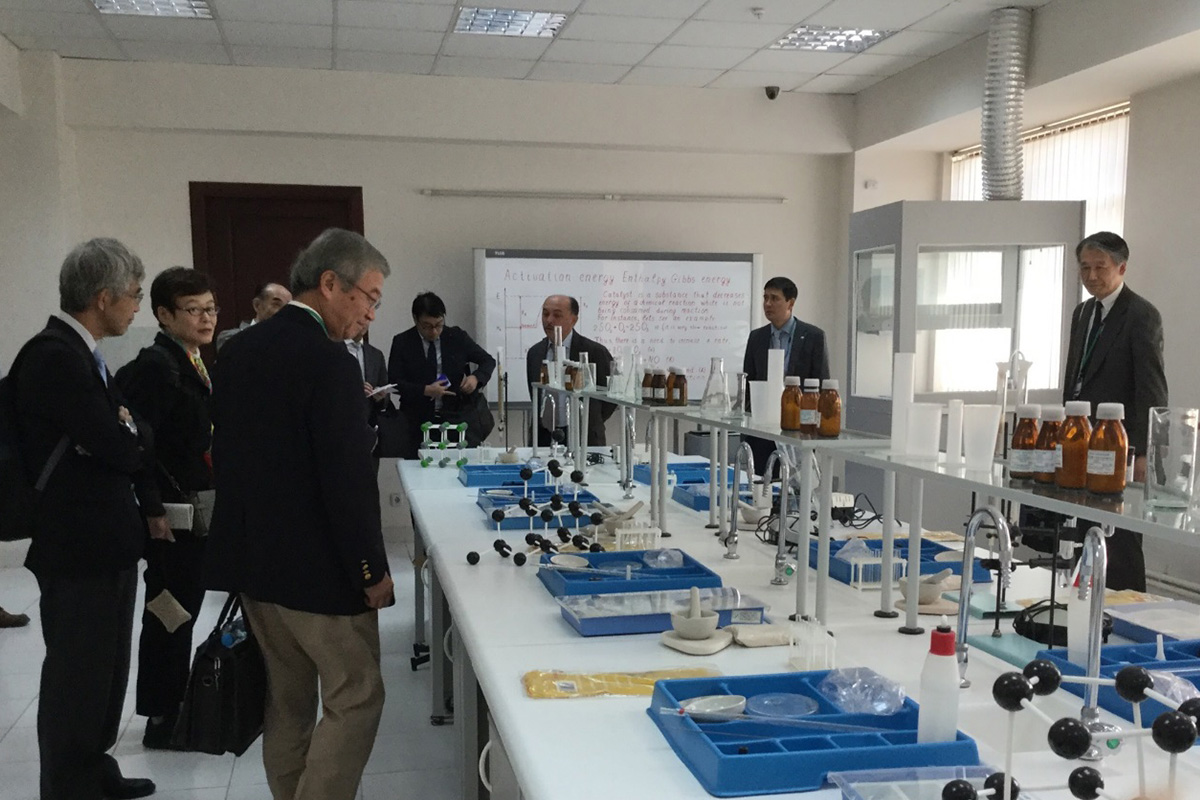 Visiting a university in Uzbekistan
Visiting a university in Uzbekistan
Participating in these missions were faculty members from the schools of law, agricultural sciences, engineering, and other fields. Travelling so far to teach seemed a heavy undertaking, but such is the resourcefulness and ambition of Meidai's teachers that they would venture overseas to teach and do research.
In Phnom Penh, the following words by a Japan International Cooperation Agency (JICA) staff: "Government assistance to developing countries will eventually end. Even JICA will leave. What will we leave behind when we do? Roads? Bridges? My hope is skilled people. In that sense, I think university professors have a big role to play." Indeed, only universities can build people. When you see Meidai graduates holding key positions in these countries, you realize that all that time and effort to build people is starting to pay off. In Phnom Penh, alumni of Japanese universities held a reunion to welcome the university delegation from Japan. As it turns out, Meidai was the most common study abroad destination represented at the event.That event was a welcome respite in a whirlwind of activities: Between ceremonies there were facility tours, administrative negotiations, class lectures, workshops, and on and on. Boy, do professors have a hard job!
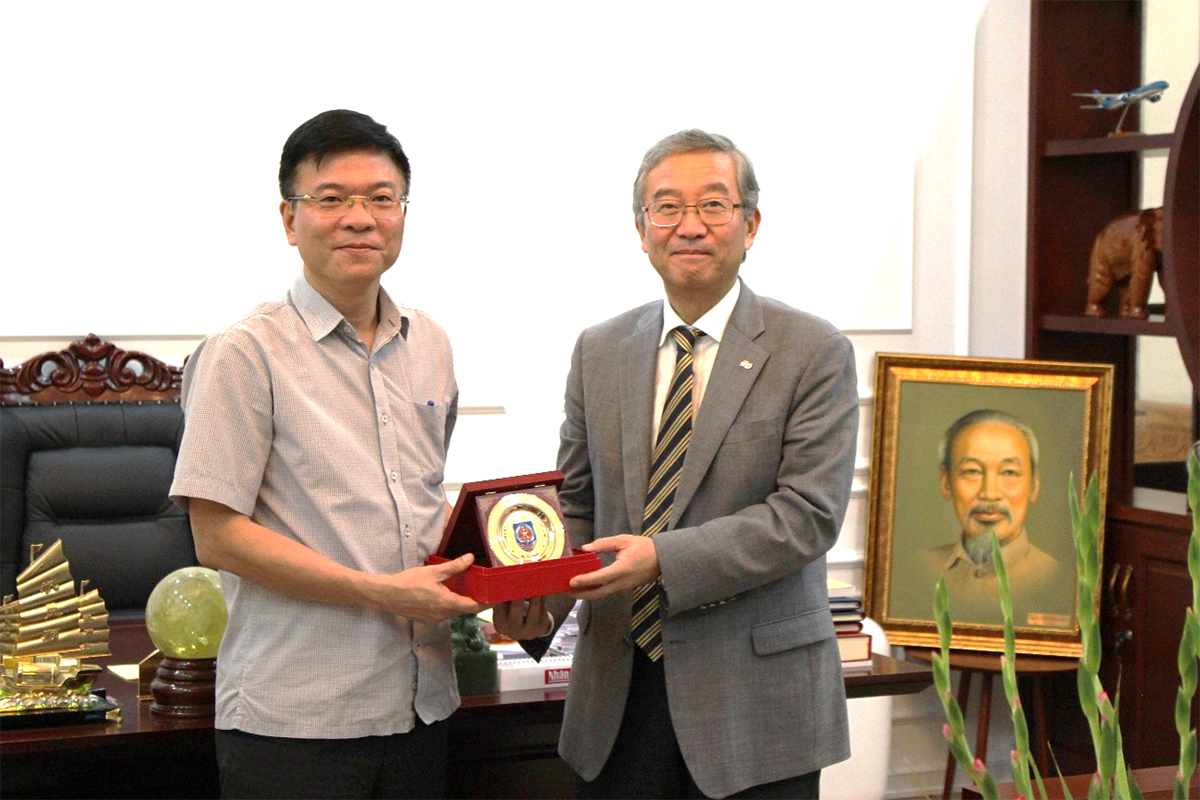 Paying a courtesy call on the Vietnam Minister of Justice
Paying a courtesy call on the Vietnam Minister of Justice
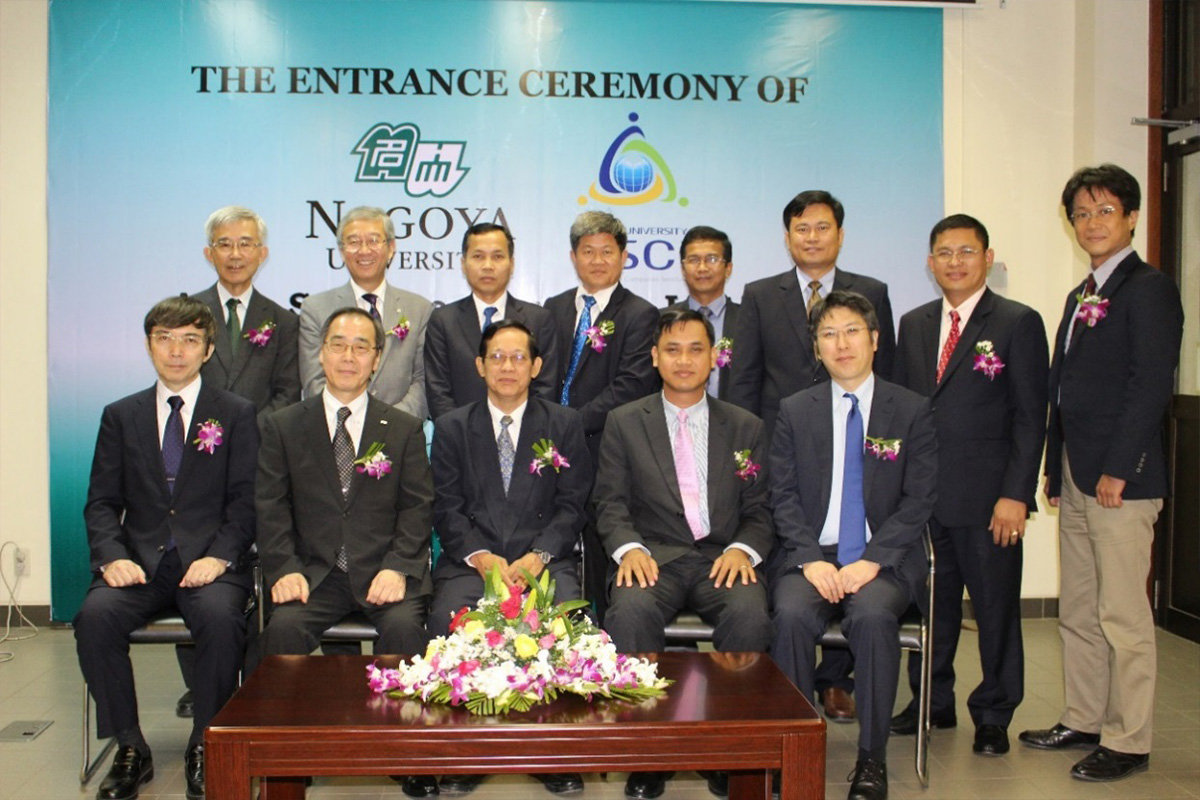 Entrance ceremony at Meidai's satellite school in Cambodia
Entrance ceremony at Meidai's satellite school in Cambodia
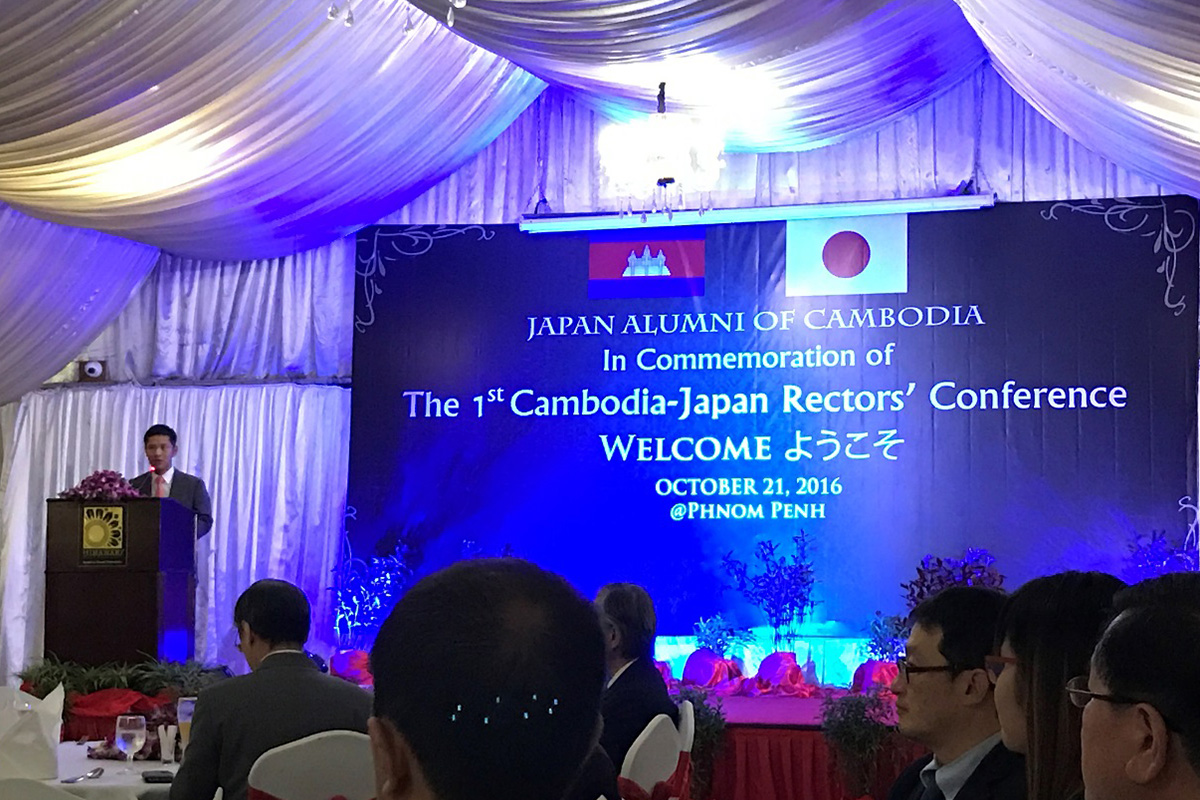 Cambodia-Japan Rectors' Conference
Cambodia-Japan Rectors' Conference
That trip included, I'm having all kinds of interesting experiences in my new position. Perhaps a slight exaggeration, but I'm like a kid in a candy store--all eyes for what's going around me.
It seems some would think me blithe and out of touch, given the difficult circumstances Japan's universities have been in recently. I received a message from a national university professor whom I've known a long time, in which he observed, "I bet universities are much changed from when you were a student," while also encouraging me to "carefully observe today's universities from the eyes of a journalist."
With the eyes of a journalist coming from the outside, I hope to write about everything that's happening at Japan's universities. Of course, universities issue communications in various forms, and research universities like Meidai enjoy special coverage in the press regarding the various outcomes of their research, not least of which is the Nobel Prize. Yet I cannot say that society has the complete picture. To begin with, the activities of universities--as contrasting with colleges--are extremely broad in scope and hard to capture fully. Still, with the future of Japan's universities a topic of heated discussion, communicating what universities do to greater society has never been more important. To that end I wish to do my part, however small.
I'm sure I will find surprising or interesting many of the things that are taken for granted at universities. But on behalf of our readers, I plan to gather information and write following the same basic approach as in my days of journalism.
To write freely from an outsider's perspective. Those are my only instructions--a job description possible, perhaps, only at Meidai, whose stated mission is for a truly open, "free and vibrant" academic culture?
At any rate, after more than decades I'm finally back at a university campus. Unfortunately I'm no longer the youthful knowledge sponge. But I am determined to give my attention to everything this remarkable environment has to offer, using the observational skills I developed as a reporter. I hope you don't mind my exploring.

 Subscribe to RSS
Subscribe to RSS